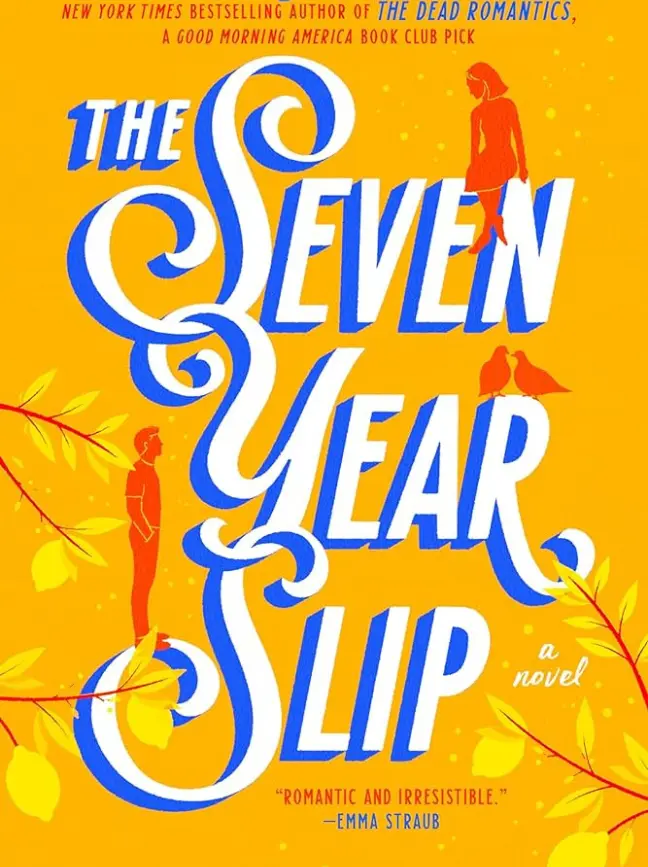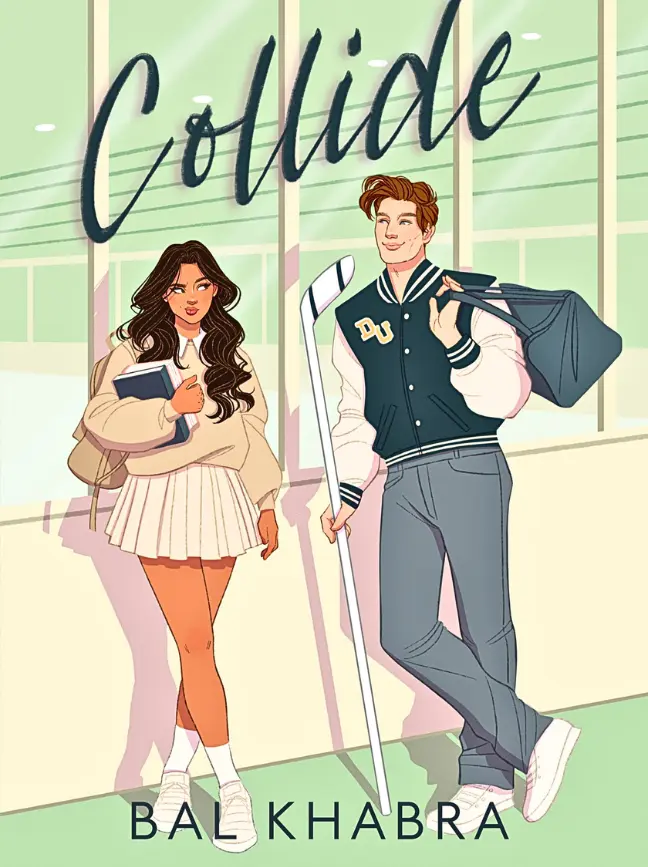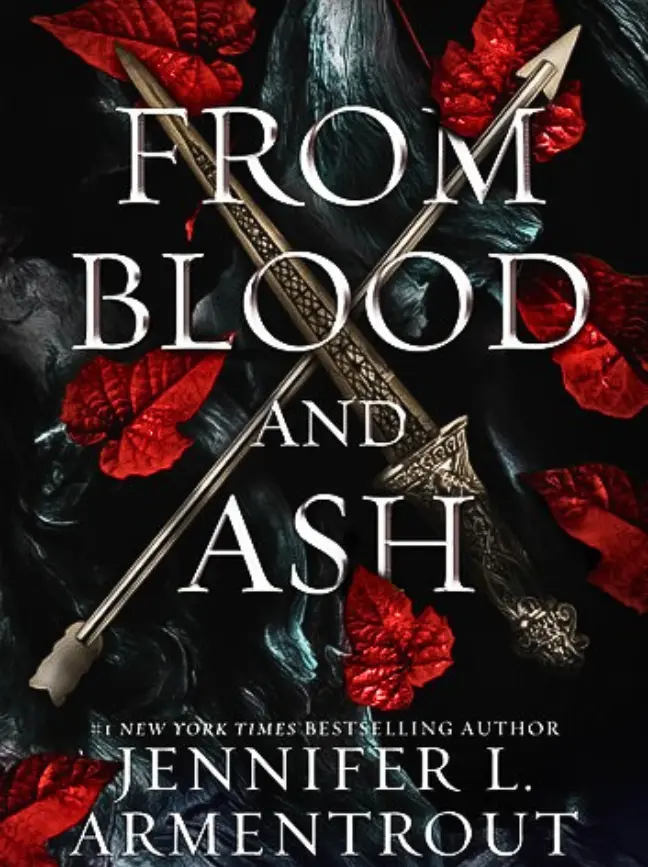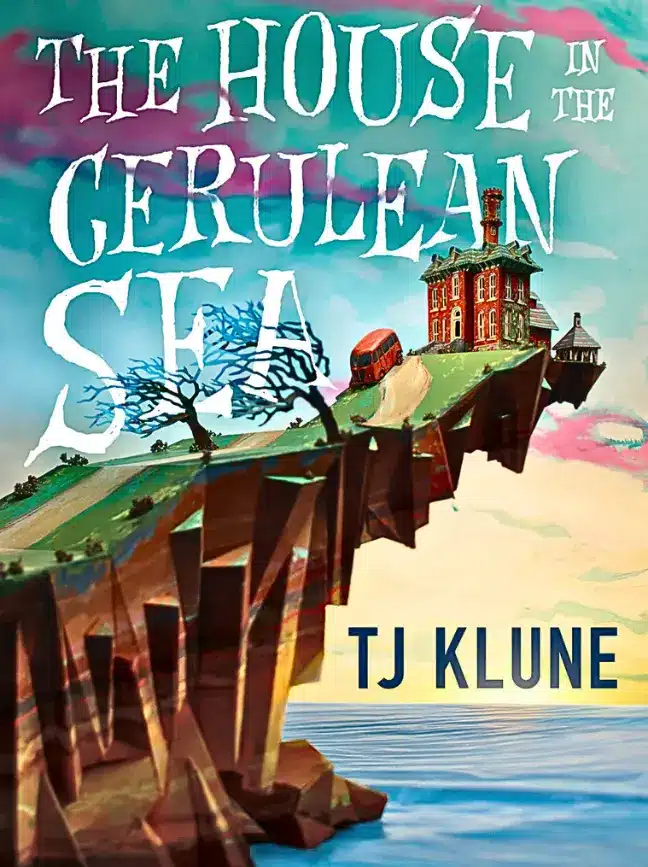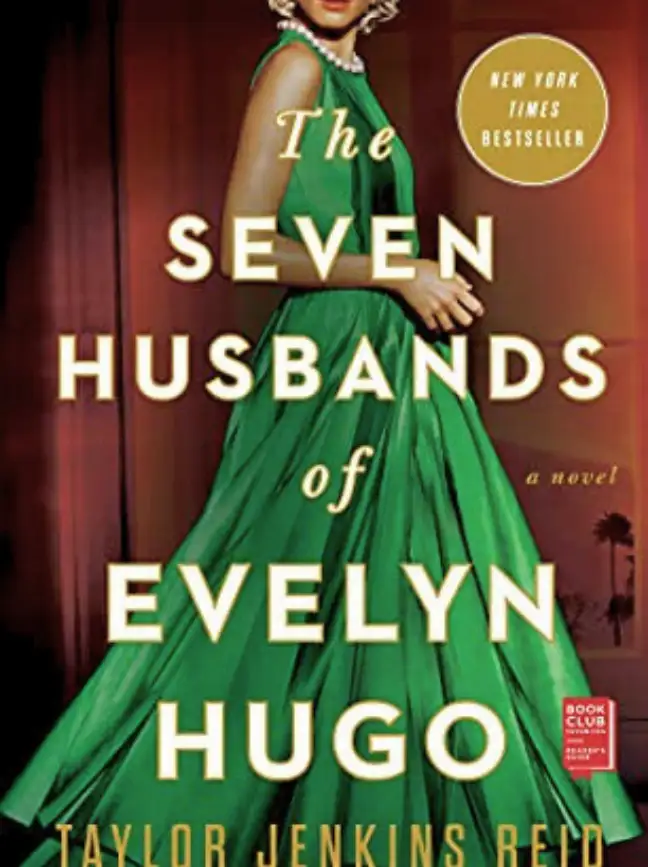Lucy Gray’s words stung but, on reflection, were well deserved. Coriolanus had never really considered her a victor in the Games. It had never been part of his strategy to make her one. He had only wished that her charm and appeal would rub off on him and make him a success. Even his encouragement to sing for sponsors was an attempt to prolong the attention she brought him. Only a moment ago, her healed hands were good news because she could use them to play the guitar on interview night, not to defend herself from an attack in the arena. The fact that she mattered to him, as he’d claimed in the zoo, only made things worse. He should’ve been trying to preserve her life, to help her become the victor, no matter the odds.
“I meant what I said about you being the cake with the cream,” Lucy Gray said. “You’re the only one who even bothered to show up. You and your friend Sejanus. You two acted like we were human beings. But the only way you can really repay me now is if you help me survive this thing.” “I agree.” Stepping up made him feel a bit better. “From now on, we’re in
it to win.”
Lucy Gray reached out. “Shake on that?”
Coriolanus gave her hand a careful shake. “You have my word.” The challenge energized him. “Step one: I think of a strategy.”
“We think of a strategy,” she corrected. But she smiled and bit into the sandwich.
“We think of a strategy.” He did the math again. “You’ve only got fourteen competitors left, unless they find Marcus.”
“If you can keep me alive a few more days, I might just win by default,” she said.
Coriolanus looked around the hall at her broken, sickly competitors, draped in chains, which encouraged him until he admitted that Lucy Gray’s condition wasn’t much better. Still, with Districts 1 and 2 out of play, Jessup watching over her, and the new sponsorship program, her odds were vastly improved from what they’d been when she’d arrived in the Capitol. Perhaps, if he could keep her fed, she could run and hide somewhere in the arena while the others fought it out or starved to death. “I have to ask one thing,” he said. “If it came to it, would you kill someone?”
Lucy Gray chewed, weighing the question. “Maybe in self-defense.”
“It’s the Hunger Games. It’s all self-defense,” he said. “But maybe it’s best if you run away from the other tributes, and we get you sponsors for food. Wait it out a bit.”
“Yeah, that’s a better strategy for me,” she agreed. “Enduring horrible things is one of my talents.” A dry bit of bread set her to coughing.
Coriolanus passed her a water bottle from his book bag. “They’re still doing the interviews, but on a voluntary basis. Are you up for it?”
“Are you kidding? I’ve got a song that was made for this whiskey voice,” she said. “You find me a guitar?”
“No. But I will today,” he promised. “Someone must have one I can borrow. If we can get you some sponsors, it will go a long way toward you getting that victory.”
She began to talk with a bit of animation about what she might sing. They’d only been allotted ten minutes, though, and the brief meeting ended with Professor Sickle ordering the mentors back to the high biology lab.
Following what had to be heightened security measures, Peacekeepers escorted them, and Dean Highbottom checked off their names as they filed to their places. The able-bodied mentors of the dead and missing tributes, including Livia and Sejanus, already sat at the lab tables, watching Dr. Gaul drop carrots into the rabbit’s cage. Coriolanus’s skin broke into a sweat at the sight of her, so close, and so crazy.
“Hippity, hoppity, carrot or stick? Everyone’s dying and you’re . . .” She turned to them expectantly, and everyone but Sejanus averted their gaze.
“Feeling sick,” said Sejanus.
Dr. Gaul laughed. “It’s the compassionate one. Where’s your tribute, boy? Any clue?”
Capitol News had continued coverage of the manhunt for Marcus, but it was less frequent now. The official word was that he was trapped down in a remote level of the Transfer, where he’d be apprehended soon. The city had relaxed, the general consensus being that he’d either died or would be captured any moment. At any rate, he seemed more bent on escaping than rising out of the Transfer to murder innocents in the Capitol.
“Possibly on his way to freedom,” said Sejanus in a strained voice. “Possibly captured and under wraps. Possibly injured and hiding. Possibly dead. I’ve no idea. Do you?”
Coriolanus couldn’t help admiring his pluck. Of course, Sejanus didn’t know how dangerous Dr. Gaul could be. He might end up in a cage with a pair of parakeet wings and an elephant’s trunk if he wasn’t careful.
“No, don’t answer,” Sejanus spat out. “He’s either dead or about to be, when you catch him and drag him through the streets in chains.”
“That’s our right,” Dr. Gaul countered.
“No, it isn’t! I don’t care what you say. You’ve no right to starve people, to punish them for no reason. No right to take away their life and freedom. Those are things everyone is born with, and they’re not yours for the taking. Winning a war doesn’t give you that right. Having more weapons doesn’t give you that right. Being from the Capitol doesn’t give you that right. Nothing does. Oh, I don’t even know why I came here today.” With that, Sejanus sprang up and bolted for the door. When he tried the handle, it wouldn’t turn. He jiggled it and then confronted Dr. Gaul. “Locking us in now? It’s like our own little monkey house.”
“You have not been dismissed,” said Dr. Gaul. “Sit down, boy.”
“No.” Sejanus said it quietly, but it still caused several people to jump.
After a pause, Dean Highbottom intervened. “It’s locked from the outside. The Peacekeepers have orders to leave us undisturbed until notified. Sit down, please.”
“Or should we have them chaperone you somewhere else?” suggested Dr. Gaul. “I think your father’s offices are nearby.” Clearly, despite her insistence on calling him boy, she’d known exactly who Sejanus was all along.
Sejanus burned with anger and humiliation, unwilling or unable to move. He just stood there, staring down Dr. Gaul, until the tension became unbearable.
“There’s an empty seat by me.” The words came unbidden from Coriolanus’s mouth.
The offer distracted Sejanus, and then he seemed to deflate. He took a deep breath, walked back down the aisle, and slid onto the stool. One hand clenched the strap on his book bag, while the other formed a fist on the table.
Coriolanus wished he’d kept quiet. He noticed Dean Highbottom giving him a quizzical look and busied himself by opening his notebook and uncapping his pen.
“Your emotions are running high,” Dr. Gaul told the class. “I understand. I do. But you must learn to harness and contain them. Wars are won with heads, not hearts.”
“I thought the war was over,” said Livia. She seemed angry, too, but not in the same way as Sejanus. Coriolanus guessed she was just peeved about losing her strapping tribute.
“Did you? Even after your experience in the arena?” asked Dr. Gaul.
“I did,” interjected Lysistrata. “And if the war is over, then technically the killing should be over, shouldn’t it?”
“I’m beginning to think it will never be over,” conceded Festus. “The districts will always hate us, and we’ll always hate them.”
“I think you might be onto something there,” said Dr. Gaul. “Let’s consider for a moment that the war is a constant. The conflict may ebb and flow, but it will never really cease. Then what should be our goal?”
“You’re saying it can’t be won?” asked Lysistrata.
“Let’s say it can’t,” said Dr. Gaul. “What’s our strategy then?” Coriolanus pressed his lips together to keep from blurting out the answer.
So obvious. Too obvious. But he knew Tigris was right about avoiding Dr. Gaul, even if it might bring praise. As the class chewed over the question, she paced up and down the aisle, finally coming to a stop at his table. “Mr. Snow? Any thoughts on what we should do with our endless war?”
He comforted himself with the thought that she was old and no one lived forever.
“Mr. Snow?” she persisted. He felt like he was the rabbit being prodded by her metal rod. “Want to take a wild guess?”
“We control it,” he said quietly. “If the war’s impossible to end, then we have to control it indefinitely. Just as we do now. With the Peacekeepers occupying the districts, with strict laws, and with reminders of who’s in
charge, like the Hunger Games. In any scenario, it’s preferable to have the upper hand, to be the victor rather than the defeated.”
“Though, in our case, decidedly less moral,” Sejanus muttered.
“It’s not immoral to defend ourselves,” Livia shot back. “And who wouldn’t rather be the victor than the defeated?”
“I don’t know that I have much interest in being either,” said Lysistrata. “But that wasn’t an option,” Coriolanus reminded her, “given the
question. Not if you think about it.”
“Not if you think about it, eh, Casca?” said Dr. Gaul as she headed back up the aisle. “A little thought can save a lot of lives.”
Dean Highbottom doodled on the list. Maybe Highbottom’s just as much a rabbit as I am, Coriolanus thought, and wondered if he was wasting his time worrying about him.
“But take heart,” Dr. Gaul continued cheerfully. “Like most of life’s circumstances, war has its ups and downs. And that’s your next assignment. Write me an essay on everything attractive about war. Everything you loved about it.”
Many of his classmates looked up in surprise, but not Coriolanus. The woman had set snakes on Clemensia for fun. Clearly, she relished witnessing pain and probably assumed they all did.
Lysistrata frowned. “Loved about it?” “That shouldn’t take long,” said Festus. “Is it a group project?” asked Livia.
“No, individual. The problem with group assignments is that one person usually does all the work,” said Dr. Gaul, giving Coriolanus a wink that made his skin crawl. “But feel free to pick your families’ brains. You might be surprised. Be as honest as you dare. Bring them to Sunday’s mentor meeting.” She pulled some more carrots out of her pocket, turned back to the rabbit, and seemed to forget about them.
When they were released, Sejanus followed Coriolanus down the hall. “You have to stop rescuing me.”
Coriolanus shook his head. “I can’t seem to control it. It’s like a tic.”
“I don’t know what I’d do if you weren’t here.” Sejanus’s voice dropped. “That woman is evil. She should be stopped.”
Coriolanus felt any attempt to dethrone Dr. Gaul would be futile, but he adopted a sympathetic manner. “You tried.”
“I failed. I wish my family could just go home. Back to District Two, where we belong. Not that they’d want us,” said Sejanus. “Being Capitol is going to kill me.”
“It’s a bad time, Sejanus. With the Games and the bombing. No one is at their best. Don’t do anything rash like running off.” As Coriolanus clapped him on the shoulder, he thought, I might need a favor.
“Running off where? How? With what?” said Sejanus. “But I really do appreciate your support. I wish I could think of some way to thank you.”
There was actually something Coriolanus needed. “You don’t happen to have a guitar I could borrow, do you?”
The Plinths did not, so he devoted the rest of Wednesday afternoon to fulfilling his promise to Lucy Gray. He asked around in school, but the closest thing he got was a maybe from Vipsania Sickle, mentor of the District 7 boy, Treech, who’d juggled the walnuts in the zoo.
“Oh, I think we used to have one during the war,” she told him. “Let me check and get back to you. I’d love to hear your girl sing again!” He didn’t know whether or not to believe her; the Sickles did not impress him as a musical crowd. Vipsania had inherited her aunt Agrippina’s love of competition, and for all he knew, she was trying to spoil Lucy Gray’s performance. But two could play at that game, so he told her she was a lifesaver and then continued his search.
After coming up empty-handed at the Academy, he thought of Pluribus Bell. Possibly, he still had instruments lying around from his nightclub days.
The minute the door in the back alley opened, Boa Bell wove between Coriolanus’s legs, purring like an engine. At seventeen, she was getting long in the tooth, and he used care as he lifted her into his arms.
“Ah, she’s always happy to see an old friend,” Pluribus said, and invited Coriolanus in.
The defeat of the districts had made little difference to Pluribus’s trade, as he still secured a living dealing in black market goods, even if they now had a more luxurious bent. Decent liquor, makeup, and tobacco were still hard to get hold of. District 1 had slowly turned its attention to supplying the Capitol with pleasures, but not everyone had access to them, and they came at a high price. The Snows were no longer regular customers, but Tigris made occasional visits to sell him the ration coupons that would
allow them to buy meat or coffee, which they usually couldn’t afford. People were happy to pay for the privilege of buying an extra leg of lamb.
Known for his discretion, Pluribus remained one of the few people Coriolanus didn’t need to pretend to be wealthy around. He knew the Snows’ situation but never blabbed about it or made the family feel inferior. Today he poured Coriolanus a glass of cold tea, filled a plate with cakes, and offered him a chair. They chatted about the bombing and how it brought up bad memories of the war, but soon their talk turned to Lucy Gray, who’d made a very favorable impression on Pluribus.
“If I had a few like her, I might think of opening the club back up,” Pluribus mused. “Oh, I’d still sell my pretties, but I could stage shows on the weekends. The truth is, we were all so busy killing each other that we forgot how to have fun. She knows, though. Your girl.”
Coriolanus told him the plan for the interview and asked if there might be a guitar they could borrow. “We’d take good care of it, I promise. I’d keep it at home except when she’s playing, and return it right after the show.”
Pluribus needed no coaxing. “You know, I packed everything away after the bombs got Cyrus. Silly, really. As if I could forget the love of my life so easily.” He got to his feet and moved a stack of perfume crates, revealing an old closet door. Inside, lovingly arranged on shelves, was a variety of musical instruments. Pluribus pulled out a surprisingly dust-free leather case and lifted the lid. A pleasant smell of old wood and polish hit Coriolanus’s nose as he looked at the gleaming, golden thing inside. The body shaped like a woman’s, the six strings running up the long neck to the tuning pegs. He strummed it lightly with his finger. Even though it was badly out of tune, the richness of the sound went right through him.
Coriolanus shook his head. “This one’s too nice. I wouldn’t want to risk damaging it.”
“I trust you. And I trust your girl. Kind of like to hear what she does with it.” Pluribus closed the case and held it out. “You take it and tell her I’ve got my fingers crossed for her. It’s good to have a friend in the audience.”
Coriolanus took the guitar gratefully. “Thank you, Pluribus. I hope you do reopen the club. I’ll be a steady customer.”
“Just like your father,” said Pluribus with a chuckle. “When he was about your age, he used to close down this place every night with that rascal Casca Highbottom.”
Every part of that sounded nonsensical. His stern father, so humorless and strict, living it up at a nightclub? And with, of all people, Dean Highbottom? He’d never heard them mentioned together, although they were about the same age. “You’re kidding, right?”
“Oh, no. They were a pair of wild things,” said Pluribus. But before he could elaborate, he was interrupted by a customer.
With great care, Coriolanus carried his prize home and laid it on his dresser. Tigris and the Grandma’am oohed and aahed over it, but he couldn’t wait to see Lucy Gray’s reaction. Whatever instrument she’d had back in District 12 could never compare with Pluribus’s.
His head ached enough to go to bed at sundown, but it took a while to fall asleep, so preoccupied was he with the relationship between his father and “that rascal Casca Highbottom.” If they had been friends, as Pluribus had suggested, none of the goodwill remained. He couldn’t help thinking that, however close they’d been during their clubbing days, things hadn’t ended well. As soon as he could, he’d press Pluribus for more details.
The next few days gave him no such opportunity, though, as they were devoted to readying Lucy Gray for the interview, which had been set for Saturday night. Each mentor-tribute pair had been assigned a classroom to work in. Two Peacekeepers were on guard, but Lucy Gray had been freed of both chains and cuffs. Tigris had provided an old dress of hers, saying that if Lucy Gray was willing to trust her, she could wash and iron her rainbow ruffles for the broadcast. Lucy Gray hesitated, but when he gave her Tigris’s other gift, a small cake of soap shaped like a flower and smelling of lavender, she had him turn his back while she changed.
The loving way she handled the guitar, as if it were a sentient being, gave him a hint of a past so unlike his own he had trouble imagining it. She took her time tuning the instrument and then played song after song, seemingly as starved for the music as for the meals he brought. He pumped her with all the food they could spare, along with bottles of tea sweetened with corn syrup to soothe her throat. Her vocal cords were much improved by the time the big night arrived.
The Hunger Games: A Night of Interviews kicked off in front of a live audience in the Academy auditorium while broadcasting throughout Panem. Hosted by the clownish Capitol TV weatherman, Lucretius “Lucky” Flickerman, it seemed both glaringly inappropriate and surprisingly welcome on the heels of all the killing. Lucky was dressed in a high-
collared blue suit with rhinestone accents, his gelled hair was dusted in coppery powder, and his mood could only be described as merry. The back curtain of the stage, resurrected from some prewar production, depicted a starry sky and twinkled accordingly.
After a jaunty rendition of the anthem played, Lucky welcomed the audience to a brand-new Hunger Games for a brand-new decade, one in which every Capitol citizen could participate by sponsoring the tribute of their choice. In the chaos of the past few days, the best Dr. Gaul’s team had been able to do was offer a half dozen basic food items the sponsors could send to the tributes.
“You’re wondering, what’s in it for you?” chirped Lucky. Then he explained the gambling, a simple system with win, place, and show options familiar to those who’d played the ponies before the war. Anyone who wanted to either send a monetary gift to feed a tribute, or place a bet on one, needed only to visit their local post office, where the staff would be happy to help. Starting tomorrow, they would be open from eight in the morning until eight at night, giving people time to place their bets before the Hunger Games kicked off on Monday. After he’d introduced the new wrinkle in the Games, Lucky had little to do but read the cue cards with the material that wrapped around the interviews, but he managed to work in a few magic tricks, like pouring different-colored wine from the same bottle to toast the Capitol and having a pigeon fly out of his bell-sleeved jacket.
Of the mentor-tribute pairs who were capable of participating, only half had something to present. Coriolanus asked to go last, knowing nothing could compete with Lucy Gray but wanting to be the closer for effect. The other mentors offered up background information about their tributes while trying to throw in something memorable and urging the public to sponsor them. To demonstrate his strength, Lysistrata sat primly in her chair while Jessup lifted her over his head easily. Io Jasper’s District 3 boy, Circ, said he could start a fire with his glasses, and she, with her scientific know-how, suggested various angles and times of day that would facilitate the task. Snooty Juno Phipps admitted she’d been disappointed to get tiny Bobbin. Didn’t a Phipps, a member of a founding family of the Capitol, deserve better than District 8? But he’d won her over when he told her five different ways he could kill someone with a sewing needle. Coral, Festus’s District 4 girl, made a case for her ability to handle a trident, a weapon that was typically available in the arena. She demonstrated with an old broomstick,
wielding it in a sinuous fashion that left little doubt of her expertise. The dairy heiress Domitia Whimsiwick’s familiarity with cows turned out to be an asset. Bubbly by nature, she got her muscular District 10 tribute, Tanner, so engaged in talking about slaughterhouse techniques that Lucky had to cut them off when they ran over. Arachne had been wrong about the appeal of that topic, because Tanner garnered the most applause of the evening so far. Coriolanus listened with one ear as he prepared to take the stage with Lucy Gray. Felix Ravinstill, the president’s grandnephew, was trying to make an impression with the District 11 girl, Dill, but Coriolanus couldn’t figure out his angle, because she’d become so sickly even her coughs were
barely audible.
Tigris had worked another one of her miracles on Lucy Gray’s dress. The filth and soot had vanished, leaving fresh, starchy rows of rainbow ruffles. She’d also sent a pot of blush Fabricia had discarded with just a smidgeon left in the bottom. Scrubbed clean, with rouged cheeks and lips, her hair piled up on her head as it had been for the reaping, Lucy Gray looked, as Pluribus had said, like someone who still knew how to have fun.
“I think your odds get better by the minute,” said Coriolanus, adjusting a hot pink rosebud in her hair. It matched the one on his lapel, just in case anyone needed a reminder of who Lucy Gray belonged to.
“Well, you know what they say. The show’s not over until the mockingjay sings,” she said.
“The mockingjay?” He laughed. “Really, I think you’re just making these things up.”
“Not that one. A mockingjay’s a bona fide bird,” she assured him. “And it sings in your show?” he asked.
“Not my show, sweetheart. Yours. The Capitol’s anyway,” said Lucy Gray. “I think we’re up.”
With her clean dress and his neatly pressed uniform, their very appearance brought a spontaneous round of applause from the audience. He didn’t waste time asking her a lot of questions no one cared about. Instead he introduced himself and stepped back, leaving her alone in the spotlight.
“Good evening,” she said. “I’m Lucy Gray Baird, of the Covey Bairds. I started writing this song back in District Twelve, before I knew what the ending would be. It’s my words set to an old tune. Where I’m from, we call it a ballad. That’s a song that tells a story. And I guess this is mine. ‘The Ballad of Lucy Gray Baird.’ I hope you like it.”
Coriolanus had heard her sing dozens of songs over the past few days, full of everything from the beauty of springtime to the heart-wrenching despair of losing her mama. Lullabies and toe tappers, laments and ditties. She’d solicited his opinion, weighing his responses to each song. He’d thought they’d settled on a charming thing about the wonder of falling in love, but a few bars into this ballad, he knew this was nothing she’d rehearsed. The haunting melody set the tone, and her words did the rest as she began to sing in a voice husky from smoke and sadness.
When I was a babe I fell down in the holler. When I was a girl I fell into your arms.
We fell on hard times and we lost our bright color. You went to the dogs and I lived by my charms.
I danced for my dinner, spread kisses like honey. You stole and you gambled and I said you should. We sang for our suppers, we drank up our money. Then one day you left, saying I was no good.
Well, all right, I’m bad, but then, you’re no prize either. All right, I’m bad, but then, that’s nothing new.
You say you won’t love me, I won’t love you neither. Just let me remind you who I am to you.
’Cause I am the one who looks out when you’re leaping. I am the one who knows how you were brave.
And I am the one who heard what you said sleeping. I’ll take that and more when I go to my grave.
It’s sooner than later that I’m six feet under. It’s sooner than later that you’ll be alone.
So who will you turn to tomorrow, I wonder?
For when the bell rings, lover, you’re on your own.
And I am the one who you let see you weeping. I know the soul that you struggle to save.
Too bad I’m the bet that you lost in the reaping. Now what will you do when I go to my grave?
You could hear a pin drop in the auditorium when she finished. Then there were a few sniffles, some coughing, and finally Pluribus’s voice shouting out “Bravo” from the back of the auditorium and the thunderous applause that followed.
Coriolanus knew it had hit home, this dark, moving, far too personal account of her life. He knew the gifts would pour into the arena for her. That her success, even now, reflected back on him, making it his success. Snow lands on top and all that. He knew he should be elated at this turn of events and jumping up and down inside while presenting a modest, pleased front.
But what he really felt was jealous.


